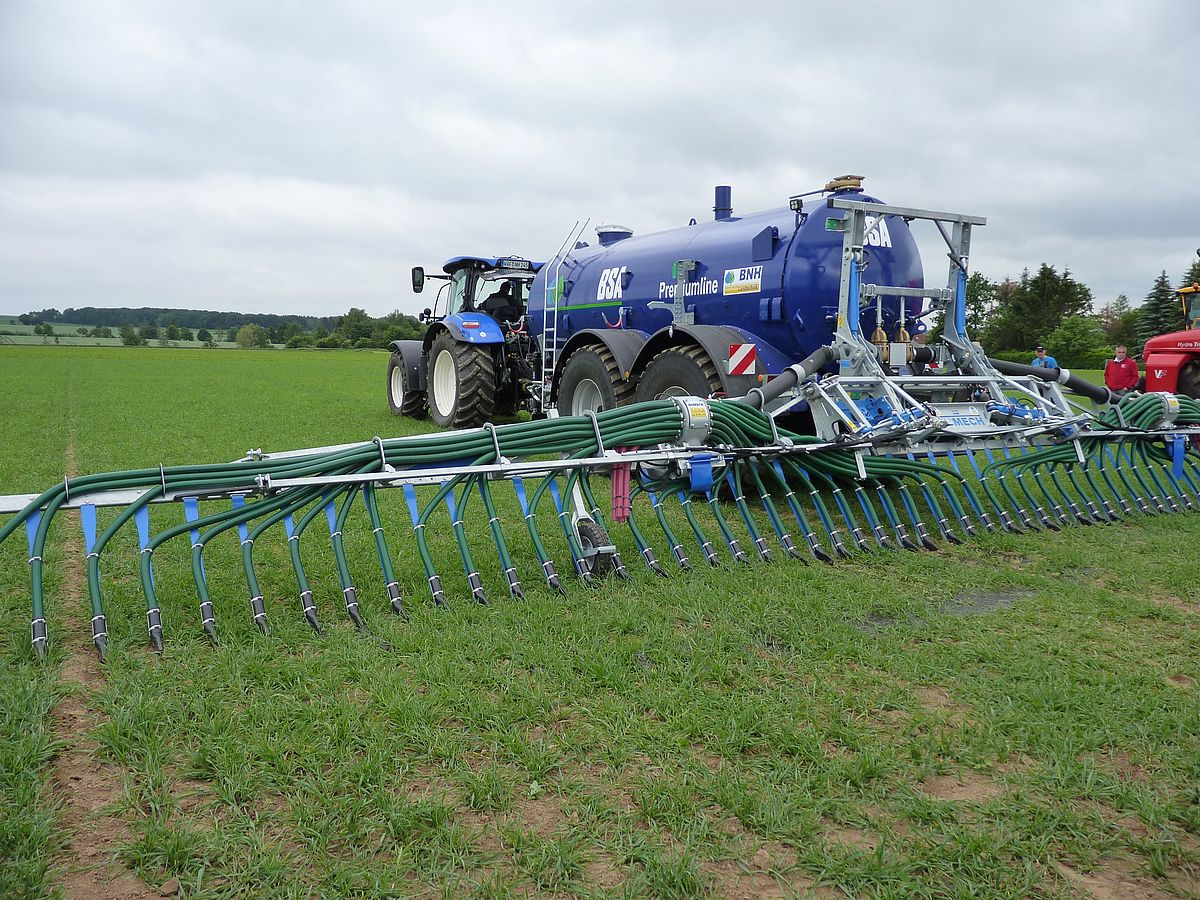Nitrogen management in the making – Material practices and policies in Germany

Project staff
Friederike Gesing
Project duration
11/2017–10/2021
Funding
University of Bremen Central Research Development Fund (CRDF): Independent Projects for Postdocs
Description
Reactive nitrogen (Nr) is an essential element that determines plant growth, making nitrogen fertilizers a key component of productivist forms of agriculture (Iles et al. 2016). However, excess nitrogen input triggers complex and interrelated problems for ecosystem and human health, such as nitrate contamination of drinking water, eutrophication of rivers and coastal waters, greenhouse gas emissions and air pollution. Nitrogen, “the very stuff of life” (Galloway & Cowling 2002) has become one of the biggest environmental problems of our time (SRU 2015). Current political developments in the field include new fertilizing regulations that have been adopted in Germany in 2017 in response to ongoing legal action by the European Commission over the country’s violation of the EU nitrate directive.
The project analyses the framing of the problem with increasing amounts of reactive nitrogen – as anthropogenic change of the global nitrogen cycle, nutrient surplus or environmental pollution. It provides an ethnographic study of nitrogen management in the making, focusing specifically on the emergence of integrated nitrogen management policies and practices that address nitrogen flows across different policy areas, environmental media and fields of knowledge production. Looking at different scales – regional, national and international – the project seeks to understand how solutions become realized by various actors at farm-level, but also at the policy and administrative levels and at the science-policy interface.
Using a qualitative, ethnographic approach, it investigates a) efforts to establish a circular nutrient economy linking the intensive livestock farming industry highly concentrated in some parts of Lower Saxony to other agricultural areas b) the development of a national Integrated Nitrogen Strategy in Germany, and c) the ongoing work on a global “policy arena for nitrogen” by science-policy bodies such as the International Nitrogen Management System (INMS) and the Task Force for Reactive Nitrogen (TFRN).
Literature
Galloway, James N. und Ellis B. Cowling (2002): Reactive Nitrogen and The World: 200 Years of Change. In: AMBIO: A Journal of the Human Environment 31(2), 64–71.
Iles, Alastair, Garrett Graddy-Lovelace, Maywa Montenegro, and Ryan Galt (2016): Agricultural Systems: Co-producing Knowledge and Food. In: he Science and Technology Studies Handbook, 4th edition, ed. Ulrike Felt, Rayvon Fouché, Clark A. Miller, Laurel Smith-Doerr, 943–972, Cambridge (MA): MIT Press.
Sachverständigenrat für Umweltfragen (SRU) (2015): NITROGEN: Strategies for resolving an urgent environmental problem (Summary). Berlin.
Project coordinator
Contact
University of Bremen
Sustainability Research Center
SFG
Enrique-Schmidt-Str. 7
28359 Bremen
Phone +49 (0) 421 / 218-61812
Fax +49 (0) 421 / 218-9861812
E-Mail: f.gesingprotect me ?!uni-bremenprotect me ?!.de

![[Translate to English:] Zur artec Startseite](/fileadmin/user_upload/sites/artec/Bilder/Logo/artecWortmarke200px.gif)